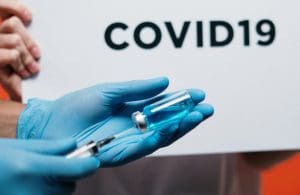
Photo from Pexels
Soon after the omicron emerged, notable companies such as Moderna (NSDQ:MRNA), Pfizer (NYSE:PFE) and its partner BioNTech (NSDQ:BNTX) announced efforts to develop a booster specific to the variant.
But several pharmaceutical companies are developing custom versions of COVID-19 vaccines for the variant or testing the efficacy of existing vaccines against omicron.
In October, the Moscow-based Institute of Human Stem Cells announced its plans to test the efficacy of its Betuvax-CoV-2 vaccine against omicron and create a new version of the vaccine if needed.
Inovio (NSDQ:INO) announced in late November 2021 that it would conduct tests of its DNA vaccine candidates INO-4800 and INO-4802 against omicron and that it had begun preclinical development of an omicron-specific vaccine.
Valneva (NSDQ:VALN) is also testing the ability of its VLA2001 to protect against omicron.
Other companies conducting similar research include Oravax with its oral virus-like particle (VLP) vaccine candidate, Daiichi Sankyo with its DS-5670 vaccine and KM Biologics with the inactivated virus vaccine KD-414.
Early data suggest that the omicron variant can elude vaccine-induced immunity, although boosters help ramp up protection.
At present, it is unclear whether omicron-specific boosters will be necessary.
Data from the UK suggests that booster protection against omicron drops significantly in as little as 10 weeks.